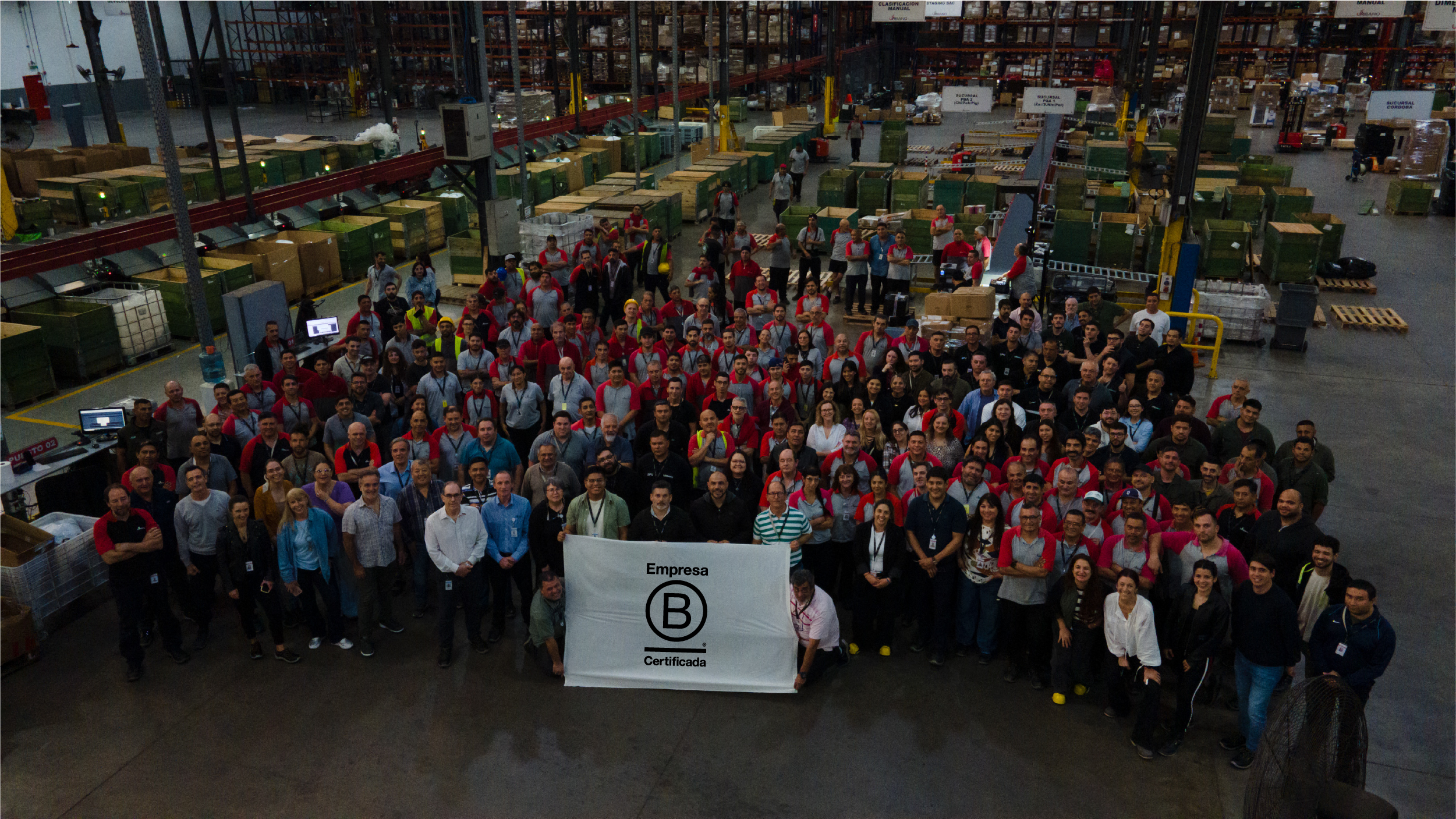

Urbano Express Argentina S.A.

1.6
Autonomous City Of Buenos Aires, Argentina
September 2025
Postal & courier activities
Service with Significant Environmental Footprint
Argentina
Urbano Express Argentina es una Empresa Triple Impacto líder en logística, warehousing y fulfillment, pionera en el país en certificar como Empresa B dentro del sector logístico de última milla. Con más de 20 años de experiencia, brindamos soluciones flexibles y personalizadas tanto para empresas como para consumidores finales, adaptándonos a las necesidades específicas de cada industria. Nuestro equipo está formado por más de 3.000 colaboradores, 52 sucursales distribuidas por todo el territorio nacional, 400 puntos de retiro y una flota de vehículos que nos permiten llevar los paquetes donde nuestros clientes lo necesiten, con eficiencia y compromiso. Nuestro propósito es generar oportunidades a través de soluciones responsables que conectan a las personas. Integramos la sostenibilidad de forma transversal en toda nuestra gestión, priorizando el impacto positivo en las personas, el ambiente y la comunidad. Impulsamos una gestión ética y transparente, colaboramos con proveedores responsables y desarrollamos una estrategia ambiental que incluye la medición, reducción y compensación de nuestra huella de carbono. Buscamos inspirar y generar un impacto positivo a lo largo de toda la cadena de valor, demostrando que es posible hacer de la logística una fuerza de cambio.
Overall B Impact Score
Governance 15.3
Governance evaluates a company's overall mission, engagement around its social/environmental impact, ethics, and transparency. This section also evaluates the ability of a company to protect their mission and formally consider stakeholders in decision making through their corporate structure (e.g. benefit corporation) or corporate governing documents.
What is this? A company with an Impact Business Model is intentionally designed to create a specific positive outcome for one of its stakeholders - such as workers, community, environment, or customers.
Workers 27.2
Workers evaluates a company’s contributions to its employees’ financial security, health & safety, wellness, career development, and engagement & satisfaction. In addition, this section recognizes business models designed to benefit workers, such as companies that are at least 40% owned by non-executive employees and those that have workforce development programs to support individuals with barriers to employment.
What is this? A company with an Impact Business Model is intentionally designed to create a specific positive outcome for one of its stakeholders - such as workers, community, environment, or customers.
Community 15.4
Community evaluates a company’s engagement with and impact on the communities in which it operates, hires from, and sources from. Topics include diversity, equity & inclusion, economic impact, civic engagement, charitable giving, and supply chain management. In addition, this section recognizes business models that are designed to address specific community-oriented problems, such as poverty alleviation through fair trade sourcing or distribution via microenterprises, producer cooperative models, locally focused economic development, and formal charitable giving commitments.
Environment 18.0
Environment evaluates a company’s overall environmental management practices as well as its impact on the air, climate, water, land, and biodiversity. This includes the direct impact of a company’s operations and, when applicable its supply chain and distribution channels. This section also recognizes companies with environmentally innovative production processes and those that sell products or services that have a positive environmental impact. Some examples might include products and services that create renewable energy, reduce consumption or waste, conserve land or wildlife, provide less toxic alternatives to the market, or educate people about environmental problems.
Customers 4.9
Customers evaluates a company’s stewardship of its customers through the quality of its products and services, ethical marketing, data privacy and security, and feedback channels. In addition, this section recognizes products or services that are designed to address a particular social problem for or through its customers, such as health or educational products, arts & media products, serving underserved customers/clients, and services that improve the social impact of other businesses or organizations.
What is this? A company with an Impact Business Model is intentionally designed to create a specific positive outcome for one of its stakeholders - such as workers, community, environment, or customers.